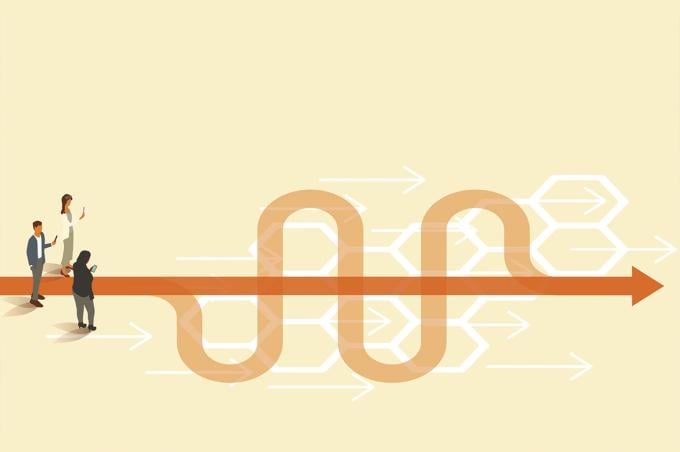Meredith Faggen, MD, has heard the statistics about increased burnout among physicians, and she understands why some doctors have an even higher prevalence than others.
"There's just a feeling inside that we don't belong, that we're not good enough," said Dr. Faggen, community medical oncologist at the Dana-Farber Cancer Institute. "Being an LGBTQ physician, I've come a long way. I've been in practice for over 20 years, and it's better now. But we have to try twice as hard to feel like we are as good as everybody else”—the purportedly “normal physicians."
Dr. Faggen, a member of the AMA Advisory Committee on LGBTQ Issues, said that earlier in her career, she missed a chance to become a partner in a physician private practice because she didn't work enough months in the year due to her maternity leave. She talked about that experience and how those types of scenarios affect burnout as part of a recent episode of “AMA Update.”
Beating burnout organizationally
Lauren Peccoralo, MD, MPH, senior associate dean of faculty well-being and development, and associate professor of internal medicine at the Icahn School of Medicine at Mount Sinai, also was interviewed for the episode. Dr. Peccoralo discussed the rise of burnout and how previous catalysts became even stronger during the COVID-19 pandemic.
"Even before COVID, we saw the electronic health record as being a very large driver of burnout," Dr. Peccoralo said. "With COVID and patients being able to access their health record and access their physicians at much higher rates, we are seeing even more burnout related to the electronic health record."
To help address burnout at an institutional level, Dr. Peccoralo said the happiness, personal health, and mental health of all employees needs to be top of mind for leadership. To do that, she recommended focusing on two core factors: culture and how the workplace functions.
"What is the water that we're swimming in?" she asked with regard to a health care organization's culture. "Is it a place that breeds well-being, or is it a place that really pushes people toward their max?"
Workplace function means examining whether employees are able to work efficiently and effectively. Do they have the resources they need?
Dr. Peccoralo, a physician leader from the AMA Women Physicians Section, recommended implementing a "well-being champion team" that comprises individuals from different departments who are able to discuss and address burnout from their department's perspective.
Reducing physician burnout is a critical component of the AMA Recovery Plan for America’s Physicians.
Far too many American physicians experience burnout. That's why the AMA develops resources that prioritize well-being and highlight workflow changes so physicians can focus on what matters—patient care.
Special challenge in cancer care
Beyond the challenges she has faced as a woman LGBTQ+ physician, Dr. Faggen said the specialty of oncology takes a particularly heavy emotional toll.
"It requires you to really have the ability to separate yourself from the patient," she said, "but still have that amazing empathy and compassion and be with them in these very difficult moments. I think that leads to burnout."
It's not just the physicians who navigate that delicate balance, she said. As patients come in on a regular basis, the front desk staff gets to know them—so do secretaries, medical assistant and anyone else with a patient-facing role. When those patients die, everyone on staff who interacted with them feels the loss.
Dr. Faggen launched a pilot program to help her and her colleagues address those feelings, and hopefully reduce burnout in the process. Dr. Faggen explained that some oncology departments hold quarterly memorial services for patients, but she doesn't believe that helps address the "in-the-moment" feeling of loss.
To combat that, Dr. Faggen helped organize weekly team meetings with a social worker where employees can share memories about patients who recently died. Whether it's a funny quote or a sweet story, the goal is to help health professionals acknowledge their feelings and address them head on, rather than letting them ultimately lead to burnout.
"The mental health of physicians is finally being recognized," she said, noting that substance-use disorder, depression and suicide among physicians “can't be ignored.”
“AMA Update” covers health care topics affecting the lives of physicians and patients. Hear from physicians and experts on public health, advocacy issues, scope of practice and more—because who’s doing the talking matters. You can catch every episode by subscribing to the AMA’s YouTube channel or the audio-only podcast version, which also features educational presentations and in-depth discussions.




